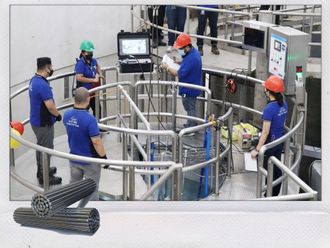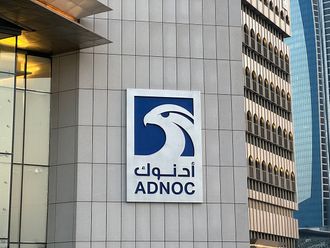Bangkok/Calgary: Thailand's PTT Exploration and Production will pay $2.3 billion (Dh8.4 billion) for 40 per cent of Statoil's Canadian oil sands project, joining the rush of Asian investors into the huge energy resource.
Norway's Statoil will remain majority owner and keep operating the early-stage Kai Kos Dehseh project in northern Alberta, which it acquired in 2007, according to terms of the deal announced by the companies yesterday.
The investment by PTTEP, the exploration and production unit of state-controlled PTT Pcl, is Thailand's first entry into Canada's oil sands, the largest source of crude oil outside the Middle East.
The resource has been the target of billions of dollars of investments by Asian state oil companies in recent years as they seek to fuel their booming economies.
"We view them as a new player with a fresh set of ideas," Statoil Canada President Lars Christian Bacher said in an interview.
"Technology development has always been part of Statoil's DNA and both companies are on the same page when it comes to driving technology development."
The industry is searching for ways to strengthen production techniques and to lower costs as well as improve environmental performance of oil sands - a heavy, high-carbon energy source that needs extensive processing and refining.
PTTEP, valued at $20 billion and 65 per cent-owned by its parent, ranks among Asia's top ten explorers and competes with big Chinese oil firms such as CNOOC and Sinopec.
It plans to finance the deal by selling $800 million of bonds and seeking $500 million in loans this week from four foreign banks, Chief Executive Anon Sirisaengtaksin told reporters.
It will also use $1.5 billion in cash, he added, noting PTTEP's cash flow of about $3.3 billion a year.
"The acquisition will obviously be a major boost to PTTEP," said Adithep Vanabriksha, chief investment officer at Aberdeen Asset Management, which oversees $900 million in Thai assets for its British-based parent and owns about 8 per cent of PTTEP's stock.
"The key growth opportunity for PTTEP mostly derives from overseas acquisitions," he added.
Questioning the value
But some industry analysts questioned the value of the deal for PTTEP, whose shares were down 2.5 per cent to underperform a 1.6 per cent loss in Thailand's stock market.
"It's quite expensive," said Supanna Suwankird, analyst at Thanachart Securities in Bangkok, referring to the deal's enterprise value as a ratio of production.
"The project will have initial production at 10,000 bpd in early 2011. But the company plans to ramp up output to more than 300,000 bpd," she said.
The first phase of the Kai Kos Dehseh project is known as Leismer, and first production of 10,000 barrels a day of bitumen is expected early next year.
The company is awaiting regulatory approval to double that capacity.
The second phase, called Corner, is targeted for startup in 2015 or 2016, reaching production of as much as 60,000 barrels a day.
Other leases are being evaluated as well.












